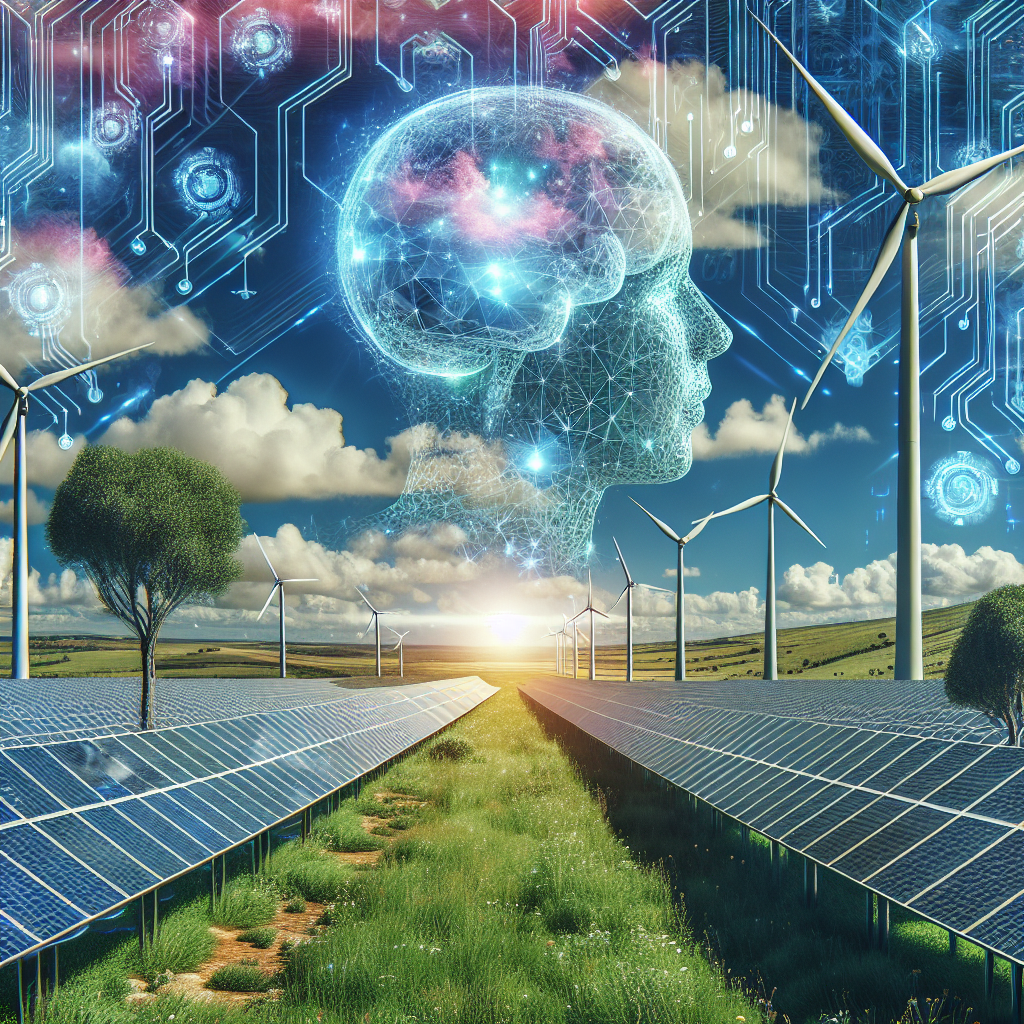Artificial intelligence (AI) is revolutionizing the energy sector by enhancing the performance of renewable energy sources. As the world shifts towards a more sustainable and environmentally friendly energy system, AI applications are playing a crucial role in optimizing the efficiency and reliability of renewable energy sources such as solar, wind, and hydro power. In this article, we will explore the various AI applications that are being used to enhance renewable energy performance and address some frequently asked questions about this exciting technology.
AI Applications for Enhancing Renewable Energy Performance
1. Predictive Maintenance: One of the key applications of AI in the renewable energy sector is predictive maintenance. By analyzing data from sensors and other sources, AI algorithms can predict when equipment is likely to fail and schedule maintenance before any issues arise. This not only reduces downtime and maintenance costs but also improves the overall efficiency of renewable energy systems.
2. Energy Forecasting: AI algorithms can analyze historical data, weather patterns, and other factors to predict energy production from renewable sources such as solar panels and wind turbines. This allows energy operators to better plan for fluctuations in energy production and optimize their operations accordingly.
3. Grid Optimization: AI can help optimize the distribution and transmission of renewable energy by analyzing data from smart grids and making real-time decisions to balance supply and demand. This can help reduce energy wastage and improve the overall efficiency of the grid.
4. Asset Management: AI can be used to optimize the performance of renewable energy assets such as solar panels, wind turbines, and hydroelectric plants. By analyzing data from sensors and other sources, AI algorithms can detect anomalies and optimize the performance of these assets to maximize energy production.
5. Demand Response: AI can help manage energy demand by analyzing data from smart meters and other sources to predict peak demand periods and adjust energy production accordingly. This can help reduce energy costs and prevent grid overloads.
FAQs
Q: How does AI improve the efficiency of renewable energy sources?
A: AI improves the efficiency of renewable energy sources by optimizing operations, predicting maintenance needs, and forecasting energy production. By analyzing data from sensors and other sources, AI algorithms can make real-time decisions to maximize energy production and minimize downtime.
Q: What are the benefits of using AI in the renewable energy sector?
A: The benefits of using AI in the renewable energy sector include improved efficiency, reduced maintenance costs, increased reliability, and better grid management. AI can help optimize energy production, reduce downtime, and improve the overall performance of renewable energy sources.
Q: Is AI safe to use in the renewable energy sector?
A: Yes, AI is safe to use in the renewable energy sector. By analyzing data from sensors and other sources, AI algorithms can detect anomalies and make real-time decisions to optimize energy production and prevent failures.
Q: How can companies implement AI in their renewable energy operations?
A: Companies can implement AI in their renewable energy operations by collecting data from sensors and other sources, training AI algorithms to analyze this data, and integrating AI solutions into their existing systems. By working with AI experts and technology providers, companies can leverage AI to optimize their renewable energy operations.
In conclusion, AI applications are playing a crucial role in enhancing the performance of renewable energy sources. By optimizing operations, predicting maintenance needs, and forecasting energy production, AI is helping to improve the efficiency, reliability, and sustainability of renewable energy systems. As the world continues to shift towards a more sustainable energy system, AI will play an increasingly important role in optimizing renewable energy performance.

